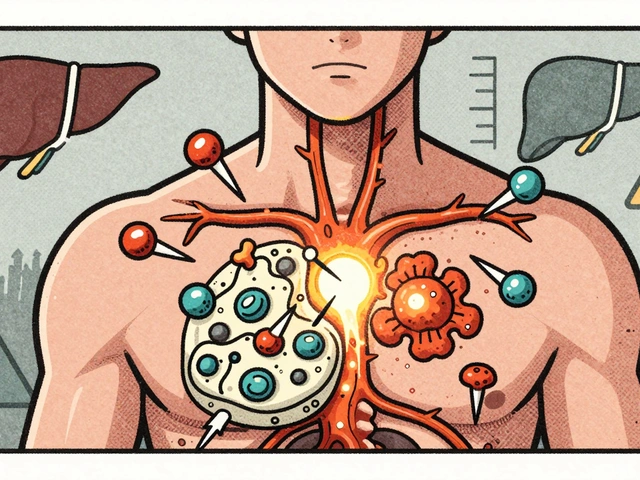Vitiligo treatment: practical options and what to expect
Want your skin to repigment or at least stop spreading? Vitiligo can be frustrating, but there are reliable paths to try. Some people get good results; others manage color with cosmetics and sun care. Below are clear, practical treatment options and what each one really does.
Medical treatments you can discuss with a dermatologist
Topical corticosteroids are often the first step. Low- to mid-strength creams can slow spreading and sometimes return color when used early. Stronger steroids work faster but can thin skin if used long-term. Expect to use them for weeks to months and check in with your doctor every few months.
Topical calcineurin inhibitors (tacrolimus, pimecrolimus) are useful, especially on the face and neck. They avoid steroid-related thinning and can help repigmentation. You’ll usually see results after a few months if the skin is still active.
Narrowband UVB phototherapy is one of the most effective non-surgical options. Treatments are typically 2–3 times a week for several months. Face and trunk respond best; hands and feet are harder to treat. Phototherapy pairs well with topical treatments and can give steady, noticeable repigmentation.
Newer topical options like ruxolitinib (a JAK inhibitor) have shown good results for some people with nonsegmental vitiligo. It’s prescription-only, can be expensive, and works best on the face and neck. Ask your dermatologist if you’re a candidate.
Surgical and extreme options
For stable patches (no new spots for 6–12 months), surgical grafting or blister grafting can transfer pigment to white areas. These procedures need a skilled dermatologist or plastic surgeon and work best on small, stable patches.
If vitiligo covers most of your body and repigmentation isn’t possible, depigmentation (using agents like monobenzyl ether of hydroquinone) lightens the remaining skin so color is even. This is permanent and only for extensive cases—think carefully and discuss risks.
Cover-up strategies matter. Medical camouflage products, tinted sunscreens, and self-tanners can make a big visual difference quickly. Sunscreen is essential—sunburn can worsen vitiligo and make repigmentation harder.
Finally, expect time and variability. Repigmentation can take months to years, and results differ by body area. Face and trunk respond best; hands, feet, and fingers are slow. If lesions spread rapidly, affect joints, or cause distress, see a dermatologist who treats vitiligo. Support groups and counseling help many people cope with the emotional side.
Want a short plan to take to your appointment? Note when patches started, whether they’ve changed, any family history, current medications, and which areas bother you most. That helps your doctor pick the right mix of treatments for your skin and life.

- May 10, 2024
- Posted by Cillian Osterfield
Exploring Aripiprazole as a Vitiligo Treatment: New Insights
Vitiligo is a skin condition that causes loss of pigment, leading to white patches on the skin. Aripiprazole, a drug commonly used for psychiatric disorders, is emerging as a potential treatment for vitiligo. This article delves into the science behind it, how it works, and real-world patient experiences, offering a comprehensive look at this potential new remedy.
Categories
- Health and Wellness (70)
- Medications (68)
- Health and Medicine (28)
- Pharmacy Services (12)
- Mental Health (9)
- Health and Career (2)
- Medical Research (2)
- Business and Finance (2)
- Health Information (2)
Latest Posts
©2026 heydoctor.su. All rights reserved





